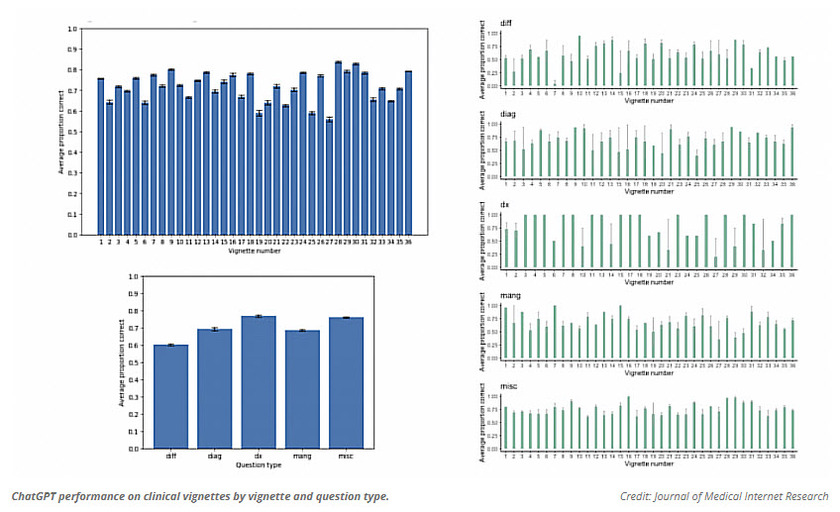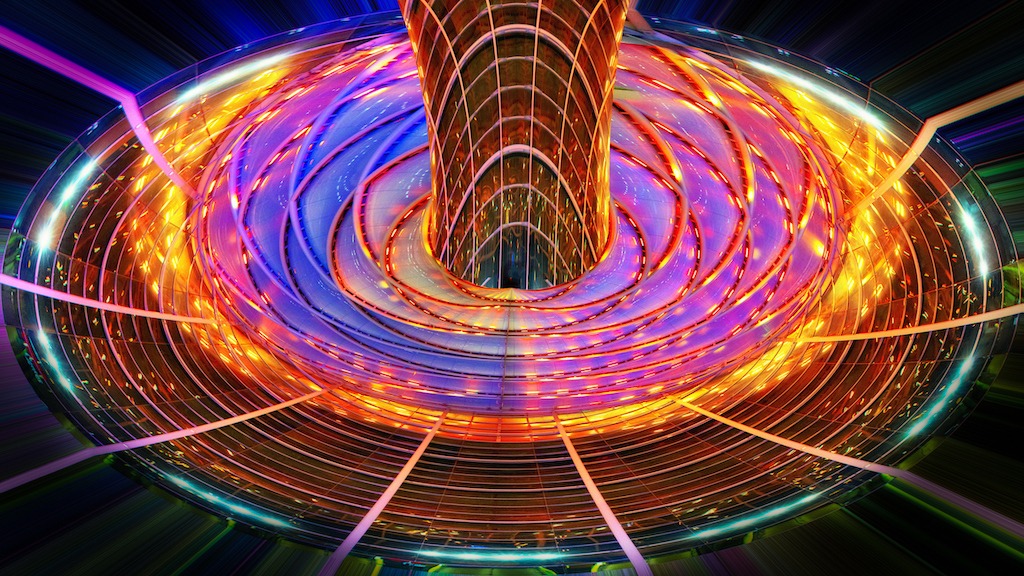Today we are looking at the Matrix type of theory today we are all really living in a simulation. I thought about this when I saw an experiment using light and a split beam where light was recorded as a beam before the split beam as a wave then as a particle when observed then back to a wave. It is like it went back in time and become a wave again. They said this is proof we are in a simulation. So I thought I would explore this perception. Thus here is an article form builtin.com and written by Mike Thomas that looks at Simulation Theory:
"What is reality? Simulation theory tackles some heavy questions.
What is reality?
Countless brainiacs and psychedelia enthusiasts have pondered that question for centuries, formulating theories that run the gamut from scientific to mystical.
From a purely empirical standpoint, the answer seems obvious. Reality is anything we can perceive using one or more of the five senses: taste, smell, touch, hearing and sight. But some outside-the-box thinkers, including philosophers and physicists, contend that’s not necessarily the case. It is possible, they theorize, that reality is merely an ultra-high-tech computer simulation in which we sim-live, sim-work, sim-laugh and sim-love.
From the time it entered popular consciousness, many have noted that simulation theory is essentially a modern offshoot of Plato’s “Allegory of the Cave” story from the Ancient Greek philosopher’s book The Republic, and René Descartes’s evil demon hypothesis from the French philosopher and scientist’s First Meditation. Both contain ruminations on perception and the nature of being — subjects that continue to puzzle and provoke.
DO WE LIVE IN A SIMULATION?
Simulation theory posits the universe as we know it is an advanced digital construct overseen by some higher form of intelligence. This concept has been debated since the Enlightenment, but there is no definitive answer.
What Is Simulation Theory?
So, what does all of this mean? If we take the red pill and step through the looking glass, simulation theory posits that we are all likely living in an extremely powerful computer program. (Think The Matrix.)
It sounds far-fetched, but Swedish philosopher Nick Bostrom showed in 2003 that it’s more probable than one might think. In his seminal paper titled “Are You Living in a Computer Simulation?” Bostrom explained that future generations might have mega-computers that can run numerous and detailed simulations of their forebears, in other words “ancestor simulations,” in which simulated beings are imbued with a sort of artificial consciousness. And the odds are, we are products of that simulation.
“Then it could be the case,” he explained, “that the vast majority of minds like ours do not belong to the original race but rather to people simulated by the advanced descendants of an original race. It is then possible to argue that, if this were the case, we would be rational to think that we are likely among the simulated minds rather than among the original biological ones.”
Other philosophers have expanded on Bostrom’s argument.
New York University philosophy professor David Chalmers described the higher being responsible for this potential hyper-realistic simulation as a “programmer in the next universe up,” perhaps one we mortals might consider a god of some sort — though not necessarily in the traditional sense.
“[They] may just be a teenager,” Chalmers said, “hacking on a computer and running five universes in the background … But it might be someone who is nonetheless omniscient, all-knowing and all-powerful about our world.”
Brain spinning yet? Get used to it.
The theory also builds on the argument philosophers have been having for centuries, which is that we can never know if what we’re seeing is “real.”
“Simply because we perceive the world as ‘real’ and ‘material’ doesn’t mean that it is so,” said Rizwan Virk, a tech entrepreneur and author of The Simulation Hypothesis. “In fact, the findings of quantum physics may shed some doubt on the fact that the material universe is real. The more that scientists look for the ‘material’ in the material world, the more they find that it doesn’t exist.”
Virk mentioned the renowned physicist John Wheeler, who worked with Albert Einstein decades ago. In his lifetime, Wheeler said, physics had evolved from the premise that “everything is a particle” to “everything is information.” He also coined a phrase that’s well known in scientific circles: “It from bit,” meaning everything is based on information. Even the definition of a particle in physics is “kind of fuzzy,” Virk added, “and may in fact just be a qubit — a quantum computing bit.”
Even more mind-meltingly, theoretical physicist David Bohm once posed this tortuous notion: “Reality is what we take to be true. What we take to be true is what we believe. What we believe is based upon our perceptions. What we perceive depends on what we look for. What we look for depends on what we think. What we think depends on what we perceive. What we perceive determines what we believe. What we believe determines what we take to be true. What we take to be true is our reality.”
And what we take to be true, more than a few folks believe — among them tech entrepreneur Elon Musk, who famously said the odds that we’re not living in a simulation are “one in billions” — might now or at least someday be merely the effect of simulated brains and nervous systems processing a simulated world.
To Musk’s unique way of thinking, the strongest argument for our probably being in a simulation is that, as he put it in 2016, “Forty years ago, we had Pong, two rectangles and a dot … That is what games were. Now, 40 years later, we have photorealistic 3D simulations with millions of people playing simultaneously, and it’s getting better every year. And soon we’ll have virtual reality, augmented reality. If you assume any rate of improvement at all, the games will become indistinguishable from reality.”
How Would Simulated Reality Work?
What AI is to dystopian blockbuster The Terminator, simulation theory is to the Wachowski siblings’ sci-fi thriller The Matrix, which depicts a post-apocalyptic world in which a race of machines have captured most of humanity and imprisoned their minds within an artificial reality known as “the Matrix” in order to harvest humans’ body heat and electrochemical energy.
In the film, humans going about their everyday lives didn’t realize they were actually living in a simulation because a cable plugged into their neocortices (where stuff like spatial reasoning and sensory perception occur) beamed signals into their brains and read their reactions.
One way to achieve that (or something like it) in the real world, Virk said, would be to gain a greater understanding of human consciousness and how it works so we can produce “conscious AI.” The far less technical alternative, he said, is “tricking our consciousness into thinking that we are in reality when we are in a video game” in which non-player characters exhibit intelligent human-like behavior that passes the Turing Test.
“This,” he concluded somewhat ominously, “is coming.” In fact, quantum computing may play a major role in advancing in-game AI.
In Bostrom’s 2003 paper, the philosopher argued that if humans are able to survive thousands of years to reach a “posthuman state” — one in which we have “acquired most of the technological capabilities” consistent with physical laws and material and energy constraints — it’s likely they would have the capabilities to run ancestral simulations.
That type of “posthuman simulator,” Bostrom also wrote, would need sufficient computing power to keep track of “the detailed believe-states in all human brains at all times.”
Why? Because it would essentially need to sense observations (of birds, cars and so on) before they happened and provide simulated detail of whatever was about to be observed. In the event of a simulation breakdown, the director — whether teenager or giant-headed alien — could simply “edit the states of any brains that have become aware of an anomaly before it spoils the simulation. Alternatively, the director could skip back a few seconds and rerun the simulation in a way that avoids the problem.”
We’re (likely) not there yet, but Virk thinks we will be at some point. There are 10 checkpoints on the road to full-blown simulation, he said, and we’re nearly halfway to our destination.
But there are also major barriers ahead, he added, namely what are called brain computer interfaces. This involves technology that can communicate and be controlled directly through brain waves, according to a report from the nonprofit policy think tank RAND Corporation.
For now, however, those don’t yet exist.
Do We Live in a Simulation?
Calling simulation theory “a bit flaky, but a fascinating idea,” astronomer Martin Rees nonetheless remained curious about the idea in an interview with Space.com. “The real question,” he said, “is what are the limits of computing powers.” Or are there limits? Judging by the types of real-world simulations scientists can now run on supercomputers, what might they be able to run in the coming decades or centuries as processing power achieves levels we currently can’t fathom?
Cosmologist Paul Davies has over the years shared many deep thoughts on this complex topic. He has spoken so much on the subject that he preferred to let his past ruminations do the talking. Even as far back as 2003, in a story for The Guardian, Davies was posing brain-boggling simulation scenarios. Here’s part of what he wrote:
Mathematicians have proved that a universal computing machine can create an artificial world that is itself capable of simulating its own world, and so on ad infinitum. In other words, simulations nest inside simulations inside simulations ... Because fake worlds can outnumber real ones without restriction, the “real” multiverse would inevitably spawn a vastly greater number of virtual multiverses. Indeed, there would be a limitless tower of virtual multiverses, leaving the “real” one swamped in a sea of fakes.
So the bottom line is this: Once we go far enough down the multiverse route, all bets are off. Reality goes into the melting pot, and there is no reason to believe we are living in anything but a Matrix-style simulation. Science is then reduced to a charade, because the simulators of our world — whoever or whatever they are — can create any pseudo-laws they please, and keep changing them.
Preston Greene, a philosophy professor at Nanyang Technological University in Singapore, said he thinks we could be living in a simulation right now. But proving as much, he has warned, would be catastrophic.
Just as present-day researchers use simulations to digitally create scenarios to aid scientific study —what would happen if we eliminate mosquitoes? — our world and every moment of our past existence might be the simulated experiment of future humans. And just as scientists can terminate simulations (of earthquakes, weather, etc.) when they no longer provide useful data, so too can our hypothetical overlords pull the plug at any time, without warning.
But rest assured, Greene said, “It would be a quick and painless death.”
“If our physicists use experiments to prove we live in a simulation, and they tell everyone about this and that has a large effect on how our civilization behaves,” he explained, “then our simulation would no longer be useful for answering questions about the basement [foundational] level of reality, which contains the computers doing the simulations.”
Greene continued: “This is because such experimental proofs could never happen on the basement level. So even though there are many possibilities for how our simulators would react to our using experiments to prove we live in a simulation, simulation shutdown is worth taking at least as seriously as anything else, since it is supported by observed trends in simulation science.”
Not everyone in the scientific community is on board with the theory.
Arguments Against Simulation Theory
Like any outside-the-box notion, the simulation hypothesis has plenty of skeptics. In 2016, during the 17th annual Isaac Asimov Panel Debate at New York’s American Museum of Natural History, the topic was discussed by a panel of august experts that included Chalmers, astronomer Neil deGrasse Tyson, University of Maryland physics professor Zohreh Davoudi and Harvard University physicist Lisa Randall.
“The argument says you’d have lots of things that want to simulate us. I actually have a problem with that."
Randall was the group’s most definitive doubter. Although she allowed for the possibility that nothing is what it seems, including the cognitive process of observation, she also wondered about the judgment of our supposed simulators in choosing humankind for their grand experiment.
“It’s just not based on well-defined probabilities,” she said. “The argument says you’d have lots of things that want to simulate us. I actually have a problem with that. We mostly are interested in ourselves. Why simulate us? I mean, there’s so many things to be simulating. … I don’t know why this higher species would want to bother with us.”
It was widely thought the simulation hypothesis had been disproven once and for all when, in 2017, physicists Zohar Ringel and Dmitry Kovrizhi published a Science Advances article titled “Quantized gravitational responses, the sign problem, and quantum complexity.” Here’s the catch: their work was at most indirectly relevant to simulation, which Zohar later dismissed as “not even a scientific question.”
Specifically, they proved that a classical computing technique called “quantum Monte Carlo,” used to simulate quantum particles — photons, electrons and other types of particles that comprise the universe — was insufficient to simulate a quantum computer itself, a breakthrough that would negate the need to physically build these next-level machines, which is no easy task.
And if it’s impossible to simulate a quantum computer, forget about simulating the universe.
Per Cosmos.com, “The researchers calculated that just storing information about a couple of hundred electrons would require a computer memory that would physically require more atoms than exist in the universe.”
Nonetheless, Ringel, the paper’s lead author, appeared to leave the door ever so slightly cracked when he told Popular Mechanics “Who knows what are the computing capabilities of whatever simulates us.”
In other words, echoing Bostrum and Greene, some advanced species could possess a system that makes even the world’s fastest supercomputers seem like Commodore 64s. Maybe they’ve perfected quantum computing. Or maybe it’s something else entirely — something of which our limited minds can’t even conceive."
I have lost a lot of faith with the Medical Community and the Governments over the last several years, but there are a few good things that can raise above the corruption and the pushing of drugs a new approach to heal people. The following is from www.gaia.com and written by Hunter Parsons that does not involve any drug or pushing an ineffective so called vaccine that the drug company is not held accountable in any way but they use sound! The use of sound can regrow bone tissue! Here is the story:
"The future of regenerative medicine could be found within sound healing by regrowing bone cells with sound waves.
The use of sound as a healing modality has an ancient tradition all over the world. The ancient Greeks used sound to cure mental disorders; Australian Aborigines reportedly use the didgeridoo to heal; and Tibetan or Himalayan singing bowls were, and still are, used for spiritual healing ceremonies.
Recently, a study showed an hour-long sound bowl meditation reduced anger, fatigue, anxiety, and ...
Not a fan of a Defense Agency studying Anti-Gravity and other Exotic Tech, but if the commercial world and make this technology cheap that will change our world yet again. The following is about three minute read and from www.gaia.com. The below was written by Hunter Parsons:
"Wormholes, invisibility cloaks, and anti-gravity — it’s not science fiction, it’s just some of the exotic things the U.S. government has been researching.
A massive document dump by the Defense Intelligence Agency shows some of the wild research projects the United States government was, at least, funding through the Advanced Aerospace Threat Identification Program known as AATIP.
And another lesser-known entity called the Advanced Aerospace Weapons System Application Program or AAWSAP
The Defense Intelligence Agency has recently released a large number of documents to different news outlets and individuals who have filed Freedom of Information Act requests.
Of particular interest are some 1,600 pages released to Vice News, which ...
As our technology gets better we are discovering more about the history of mankind and pushing the timeline back further and further. The following article is from www.gaia.com and written by Michael Chary that discusses this new find that changes the historical timeline:
"Over the past decade, there have been a number of archeological revelations pushing back the timeline of human evolution and our ancient ancestors’ various diasporas. Initially, these discoveries elicit some resistance as archeologists bemoan the daunting prospect of rewriting the history books, though once enough evidence is presented to established institutions, a new chronology becomes accepted.
But this really only pertains to the era of human development that predates civilization — the epochs of our past in which we were merely hunter-gatherers and nomads roaming the savannahs. Try challenging the consensus timeline of human civilization and it’s likely you’ll be met with derision and rigidity.
Conversely, someone of an alternative...
Not sure if you have heard of a show on YouTube called "The Why Files". If not you should check it out it is interesting and has some humor with it on different subjects. Last weeks was on a different theory how the Universe works and how main stream Science is attempting to shut it down like is always seems to do if it goes aguest some special interest. Today it is akin to what happened to those who questioned the Earth was the Center of the Universe that main stream so called Science all believed during the Renaissance period, They called any theory that the Earth was not the Center of the Universe misinformation. Does this sound familiar today? People laughed and mocked people like Leonardo da Vinci, Nicolaus Copernicus, Georg Purbach as crack-pots, conspiracy theorists, nut-jobs and they were suppressed and even imprisoned for their radical thoughts and observations. Again it sounds like today in so many ways. In any event this is a good one to ponder and see even if a bad idea ...
Seemingly chaotic systems like the weather and the financial markets are governed by the laws of chaos theory.
We all have heard about chaos theory, but if you have not or have forgotten what chaos theory is well here you go from interestingengineering.com:
"Chaos theory deals with dynamic systems, which are highly sensitive to initial conditions, making it almost impossible to track the resulting unpredictable behavior. Chaos theory seeks to find patterns in systems that appear random, such as weather, fluid turbulence, and the stock market.
Since the smallest of changes can lead to vastly different outcomes, the long-term behavior of chaotic systems is difficult to predict despite their inherently deterministic nature.
As Edward Lorenz, who first proposed what became commonly known as the Butterfly Effect, eloquently said, "Chaos: When the present determines the future, but the approximate present does not approximately determine the future.""
You may have heard the term about chaos theory as a butterfly flaps its wings in Brazil,...
I for one have lost trust in Medical Doctors due to COVID and reflection that they seem to push pills for everything and untested so called vaccines that is using a unproven technology because the Government and the Medical Boards of the State told them to. There are a very few exceptions. Thus they do not address the key problem just prescribe more and more pills to keep you alive an sick longer for them and Big Phama to profit from you. Will AI do any better? Well that depends on what was used for the training of AI. If it also pushes pills and vaccines without question then you have the same problems noted above. However, if the AI Training includes all possible forms of treatment and they zero in on the right issues for the true problem then there is possibilities they would be way better than most of the current Medical Doctors today.
The following is from an article from interestingengineering.com and written by Paul Ratner:
"A new study looks at how accurately AI can diagnose patients. We interview the researcher, who weighs in on AI's role ...


























